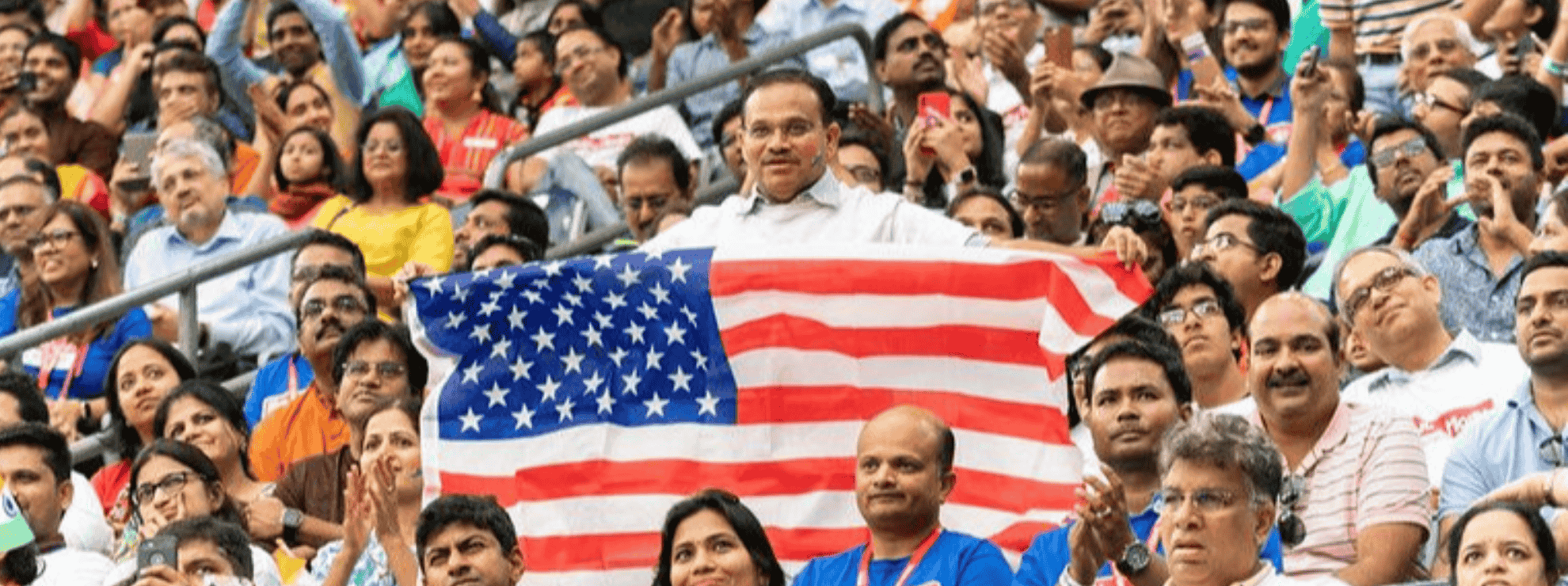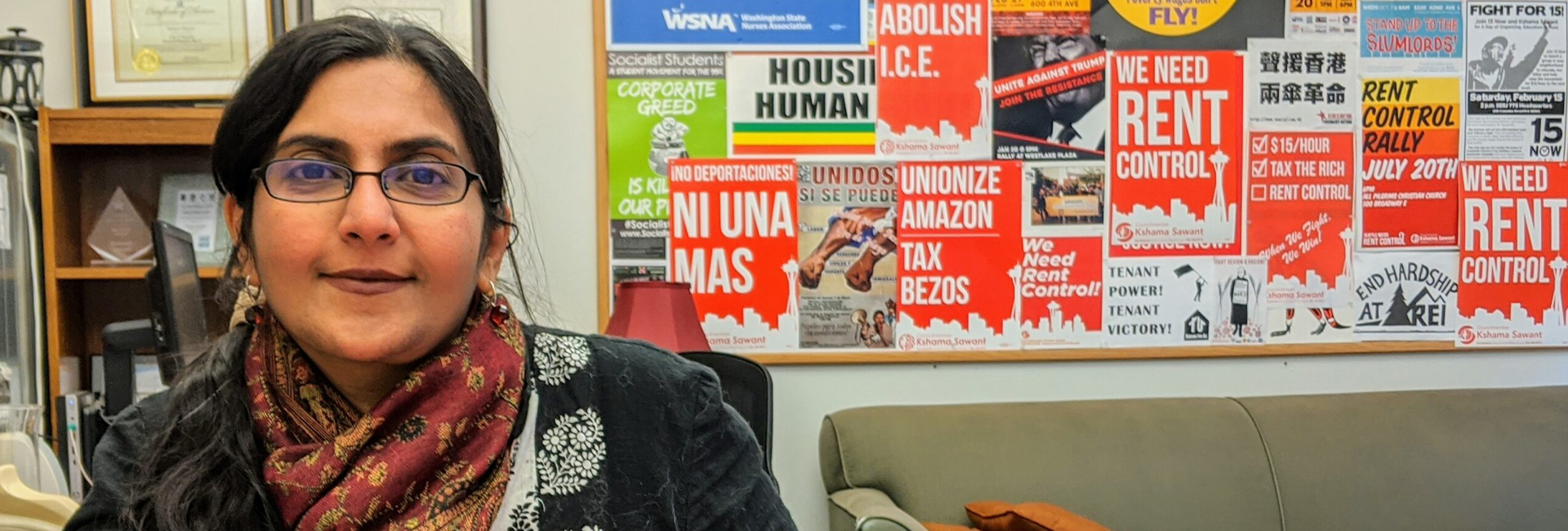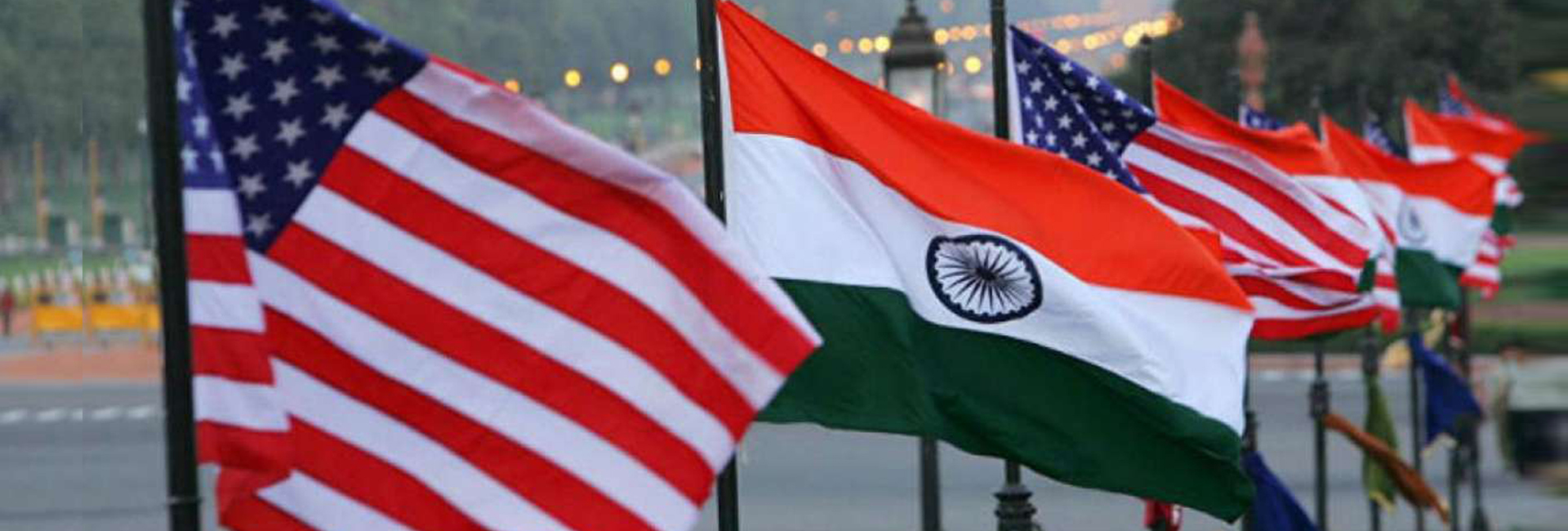(October 5, 2024) When Kamala Harris cooked a ‘dosa’ and ‘sambar’ assisted by Indian-American actress Mindy Kaling in 2019 — the video, which was watched over 6.5 million times brought smiles to the faces of Indians and Indian-Americans alike. A year later, when she became the Vice President of the United States, celebrations erupted in her ancestral village of Thulasendrapuram in Tamil Nadu. The billion dollar question now is will this ‘desi’ connection sway Indian American voters into supporting Kamala Harris to become the next President of the United States? Or will former President Donald Trump’s friendship with Indian Prime Minister Narendra Modi weigh on their minds?
Maybe, maybe not. The pendulum could swing either way. While Indians are attached to their roots, and take pride in how far Kamala Harris has come, some feel the tax-cuts and pro small-business policies of the Republicans are what America needs now. The soaring inflation of the last few years, as well as the limitations of the H-1B visa and the green card backlog (more than one million Indians are still in waiting, as of April 2024, according to the US Citizenship and Immigration Services), mean that Indians are more likely to vote for policy than sentiment.
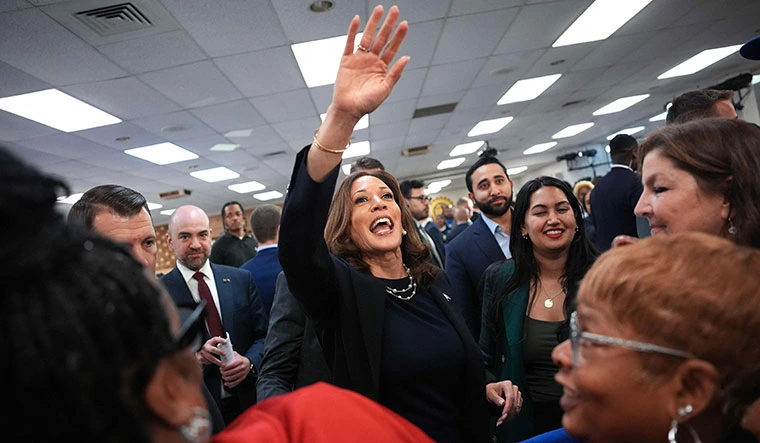
The Indian-Americans, a community of 4.5 million and the most sought-after immigrant group, have chosen to play it smart. While the Indian connection might have a bearing when they set out to vote on November 5, it is their policies and solutions to the concerns of Indian-Americans that will drive them to vote in favour of either of the two Presidential candidates.
Policies matter
Fashion designer and Film maker Anjali Poghat, who is based in Central Ohio says while Kamala Harris’s Indian heritage might resonate with some voters, her policies, experience, and vision for the country are more likely to influence the majority of Indian American voters.
“Indian Americans tend to prioritize candidates based on their stances on key issues rather than solely on ethnic or cultural ties. However, the symbolic importance of representation and breaking barriers still holds significance for many in the community,” she tells Global Indian.
Stating that Indian Americans, a growing and influential demographic, are becoming key in the U.S. presidential race, Anjali says the voting decisions among the community will be driven by key issues like immigration reform, education, healthcare, racial equality, U.S.-India relations, and economic policies.
Listing out the three major issues faced by majority of people from Indian communities, Anjali says Immigration reform comes above everything else. “Policies impacting visas, family reunification, and H-1B work permits are crucial for many in the community,” she says.
Next comes healthcare. “Affordability, Medicare, and prescription drug costs are key concerns, especially for aging parents,” she says. Third in her list is racial equality and discrimination. As a minority group, Indian Americans prioritize inclusivity, racial justice, she adds.
Indian diaspora campaigns for Kamala
While Kamala Harris’ Indian heritage has led to many from the diaspora community putting their weight behind her, some Indian-Americans have taken it a step further, and have launched campaigns aiming to encourage Indian American voters to vote and make their voices heard.
One such campaign is the ‘Indian Americans for Harris’ campaign which aims to rally support for Harris in states like North Carolina, Wisconsin, Michigan, Pennsylvania, Arizona, and Georgia. The website of the campaign highlights Kamala’s bi-racial heritage as a perfect example of America as a melting pot. Her background connects with many in the country, where at least 12.5 percent of the population identifies as biracial.
Kamala is a Baptist Christian married to a Jew, who was born to a Jamaican-born father and an Indian-born mother. Harris has rarely spoken of her Indian roots though she has spoken about her Indian mother often.
In her speech in which she formally accepted the Democratic Party’s nomination for the presidency, she spoke about her mother, Shyamala Gopalan, but not about India, the country she visited as a child. Chennai was the hometown of Harris’s mother. The year 2009 was the last time she visited Chennai carrying her mother’s ashes to scatter them in the Indian Ocean waters.
‘Naacho Naacho’
Similarly, another campaign in support of Harris comes with a strong desi touch to it, features the “banger “ ‘Naacho Naacho’ (Naatu Naatu in the original Telugu), from the blockbuster movie RRR that won global trends and Oscars. The catchy track is now the new anthem for Kamala Harris’s presidential campaign.
Ajay Bhutoria, a key member of Kamala Harris’s National Finance Committee, has given the hit a makeover with his creative team, putting Harris’ name right in the spotlight. The 1.5-minute video starts off with Hamari Ye Kamala Harris (Our Kamala Harris), which is an addictive blend of campaign highlights and catchy tunes.
Produced by Ritesh Parikh and sung by Shibani Kashyap, the video also includes messages from community leaders in Telugu, Tamil, Gujarati, Punjabi, and Hindi uniting all Indian voters ahead of the upcoming November elections.
Bhutoria feels Kamala represents a “shining future” for Indian-Americans, ending the era of division and controversy. Kamala has been targeted with comments about her background and personal life, and her opponent, Donald Trump’s rallies have frequently been marked by controversial language and attacks.
Trump effect
Days after Republican nominee Donald Trump survived an assassination bid in Pennsylvania in July, a large number of Indian Americans attended his first convention held at Wisconsin, announcing all-out support for the former President.
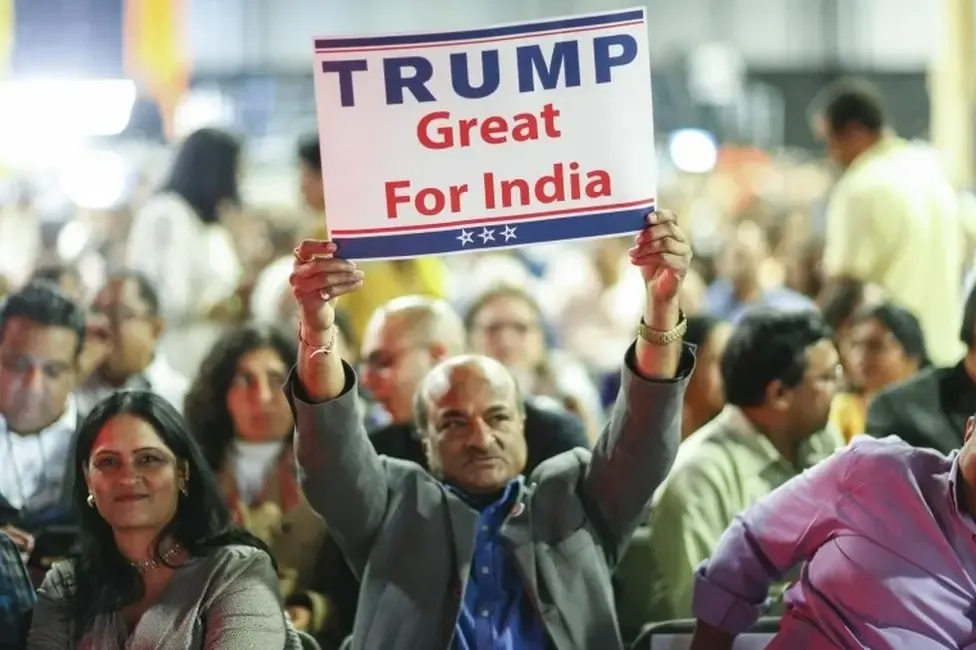
Photo: BBC
Indian-American politician Abraham George, elected chairman of the Texas Republican Party in May, took to the floor to announce that all the delegates from his state were voting for Trump. Usha Chilukuri, wife of Trump’s running mate JD Vance was also on stage apart from two other Indian Americans, Ohio State Senator Niraj Atani and Dr Sampat Shivangi.
“This is a historic convention. We stand together with Trump,” said Dr Shivangi while other delegates said that electing Trump will restore the American values, for which their ancestors came all the way to the United States.
Many Indian Americans also credit Trump for deepening ties between the two nations.
Why Trump
California-based Techpreneur Sagar Honnungar, the co-founder of Hakimo tells GI the key issues on the minds of Indian Americans include domestic issues like economic stability and healthcare accessibility as well as foreign policy concerns.
“There is indeed substantial support for Kamala Harris among Indian Americans due to her heritage and political alignment on key issues. However there are a few signs of shifting allegiances and some in the community are exploring alternative political affiliations,” says Sagar, a Stanford alumni.
He says some of the reasons that Indian American voters are drifting towards her opponent Donald Trump are Republican support for tax cuts and small business and Trump’s ties with Indian Prime Minister Narendra Modi.
“There is also discontent over the Biden administration’s handling of foreign affairs and domestic issues like inflation which has led some to reconsider their support for the Democratic Party,” he points out.
Green card backlog
Indian-American Nikeeta Pamnani also echoes Anjali Phogat in her views. She says Immigration policies, particularly around H-1B visas and the green card backlog, are top concerns, alongside access to affordable healthcare, quality education, and economic opportunities.
“As a minority group, we are also deeply concerned about racial discrimination and rising xenophobia. While Vice President Kamala Harris’ Indian heritage resonates with many, her policies and broader Democratic values, like immigration reform and social justice, play a more decisive role in earning their support,” says the New York-based Nikeeta, who works as a product manager in a private firm.
For most, it’s not just about her Indian roots, but the issues that matter to their families and futures, adds Nikeeta.

